
Pano Lefkara Village: The Jewel of Cyprus
Nestled in the picturesque mountains of Cyprus, Pano Lefkara Village is a place where tradition and beauty meet. Known for its stunning architecture and charming, narrow streets, this village offers a glimpse into the island's rich history and culture. The stone-built houses, adorned with colorful flowers, provide a perfect backdrop for leisurely strolls and photo opportunities. Pano Lefkara is famous for its intricate lacework and beautiful silver handicrafts. The village's artisans have passed down their skills through generations, and visitors can witness these crafts being made in local workshops. The Lefkara Lace, also known as 'Lefkaritika', is so renowned that it was even mentioned by Leonardo da Vinci, who reportedly purchased lace from the village to adorn the altar of Milan Cathedral. In addition to its cultural heritage, Pano Lefkara boasts a variety of traditional Cypriot taverns and cafes where you can savor local delicacies. The village is also home to several historic churches, including the Church of the Holy Cross, which houses a piece of the True Cross. Whether you're a history buff, a lover of arts and crafts, or simply seeking a peaceful retreat, Pano Lefkara Village is a must-visit destination in Cyprus.
Local tips in Pano Lefkara Village
- Visit during the Lefkara Festival in August to experience local culture and traditions at their best.
- Wear comfortable shoes as the village's cobblestone streets can be uneven.
- Try the local delicacies such as 'loukoumi' (Cyprus delight) and 'soujouko' (grape jelly sweets).
- Explore the workshops to see artisans at work and purchase authentic Lefkara Lace and silverware.
- Check the opening hours of the Church of the Holy Cross to ensure you can view the relic inside.
Pano Lefkara Village: The Jewel of Cyprus
Nestled in the picturesque mountains of Cyprus, Pano Lefkara Village is a place where tradition and beauty meet. Known for its stunning architecture and charming, narrow streets, this village offers a glimpse into the island's rich history and culture. The stone-built houses, adorned with colorful flowers, provide a perfect backdrop for leisurely strolls and photo opportunities. Pano Lefkara is famous for its intricate lacework and beautiful silver handicrafts. The village's artisans have passed down their skills through generations, and visitors can witness these crafts being made in local workshops. The Lefkara Lace, also known as 'Lefkaritika', is so renowned that it was even mentioned by Leonardo da Vinci, who reportedly purchased lace from the village to adorn the altar of Milan Cathedral. In addition to its cultural heritage, Pano Lefkara boasts a variety of traditional Cypriot taverns and cafes where you can savor local delicacies. The village is also home to several historic churches, including the Church of the Holy Cross, which houses a piece of the True Cross. Whether you're a history buff, a lover of arts and crafts, or simply seeking a peaceful retreat, Pano Lefkara Village is a must-visit destination in Cyprus.
When is the best time to go to Pano Lefkara Village?
Iconic landmarks you can’t miss
Πάνω Λεύκαρα
Explore Pano Lefkara, a picturesque Cypriot village known for its exquisite lace-making and rich cultural heritage amidst breathtaking landscapes.
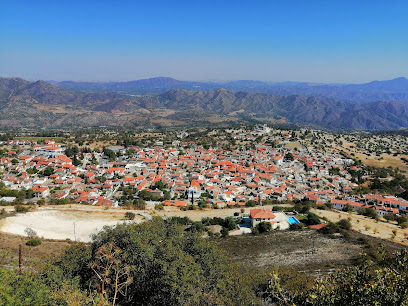
Lefkara square
Experience the vibrant culture and stunning architecture of Lefkara Square, a captivating tourist attraction in the heart of Cyprus.
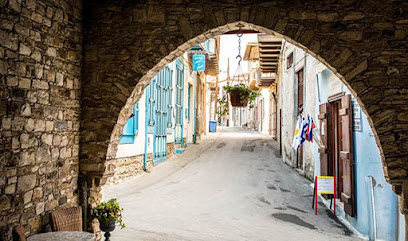
Lefkara
Explore Lefkara, a UNESCO World Heritage site in Cyprus, famous for its traditional lace-making and stunning architecture in a picturesque village setting.
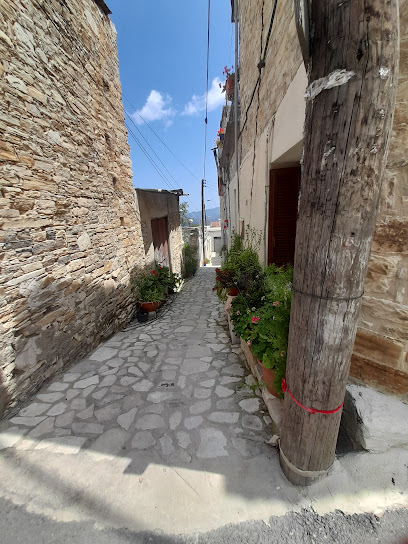
Ample Places
Discover the serene charm of Ample Places in Pano Lefkara, a hidden gem in Cyprus offering cozy accommodations and local culture.
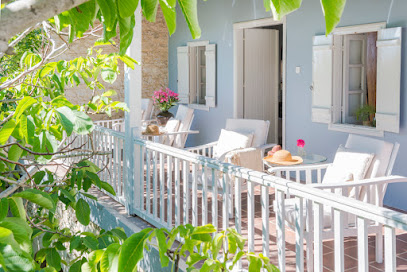
Faucet of Lefkara
Explore the Faucet of Lefkara, a UNESCO-recognized gem in Cyprus, showcasing rich culture, stunning architecture, and traditional craftsmanship.
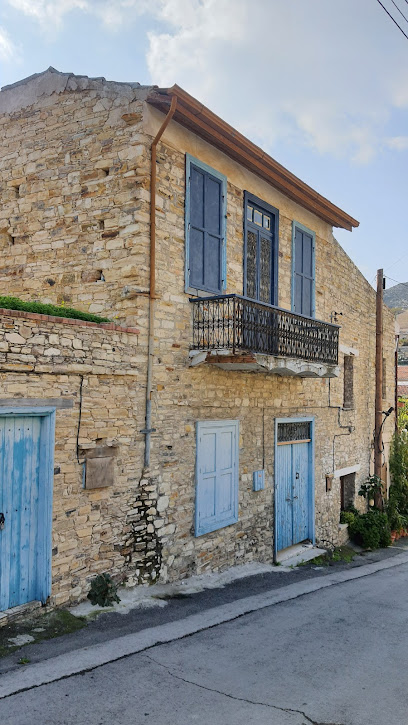
View Point Pano Lefkara
Discover breathtaking panoramic views of Lefkara and the Cypriot landscape, a haven of culture, history, and natural beauty.

Unmissable attractions to see
Υδροπάρκο Φασουρίου Watermania
Experience thrilling rides and relaxation at Fasouri Watermania, Cyprus's largest waterpark, offering fun for the whole family.
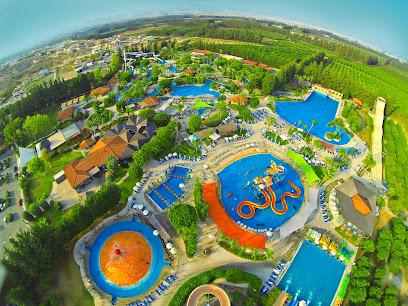
Mackenzie Beach
Experience the vibrant energy of Mackenzie Beach in Larnaca, Cyprus: sun, sea, sand, thrilling water sports, and lively nightlife await!
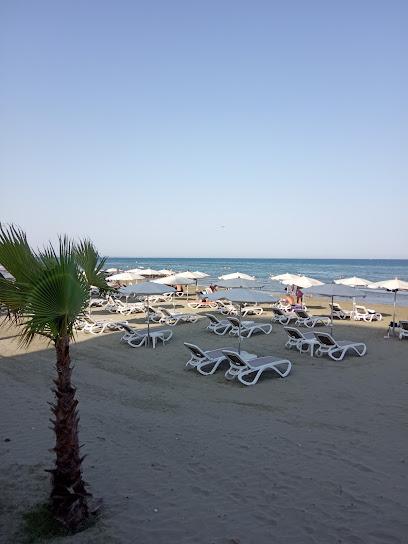
Πάνω Λεύκαρα
Discover Cyprus's artisan heart in Pano Lefkara: lace, silver, and timeless traditions in a picturesque mountain village.
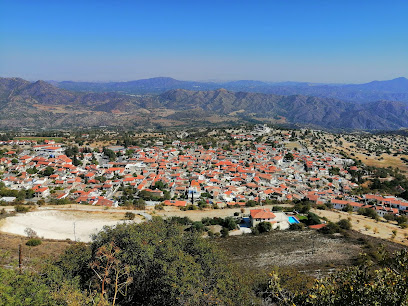
Kastella Beach - Blue Flag
Discover Larnaca's hidden gem: a Blue Flag paradise offering tranquil waters and authentic Cypriot charm along the vibrant Piale Pasa promenade.
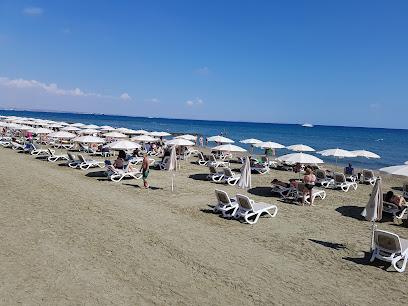
Troodos Botanical Garden
Discover Cyprus's botanical treasures at this serene mountain escape, showcasing rare and endangered flora within the Troodos National Forest Park.
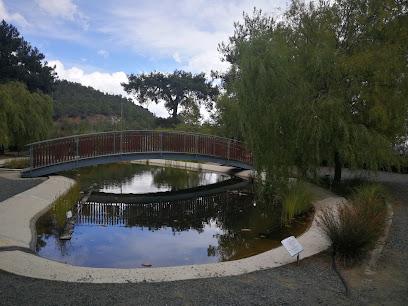
Church of the Holy Cross
Discover a 14th-century treasure in Pano Lefkara, Cyprus, featuring a legendary silver cross and exquisite Cypriot artistry.
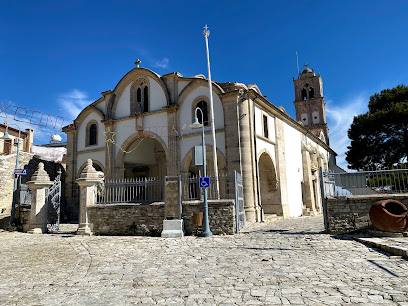
Kyrenia Mountains
Discover Cyprus's northern skyline: Hike through history, explore ancient castles, and soak in panoramic views from the rugged Kyrenia Mountains.
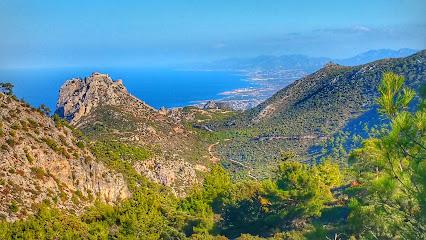
Platania
Escape to Platania National Reserve in Cyprus for serene hiking trails, diverse flora and fauna, and tranquil picnic spots in the Troodos Mountains.
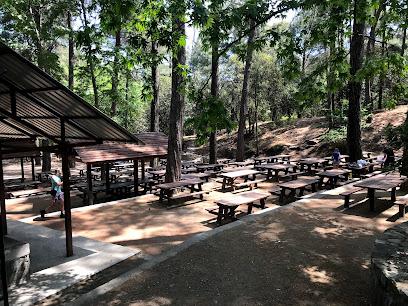
Bee & Embroidery Museum
Discover the sweet heritage of Cyprus at the Bee & Embroidery Museum in Kato Drys, where tradition comes to life through fascinating exhibits and immersive experiences.
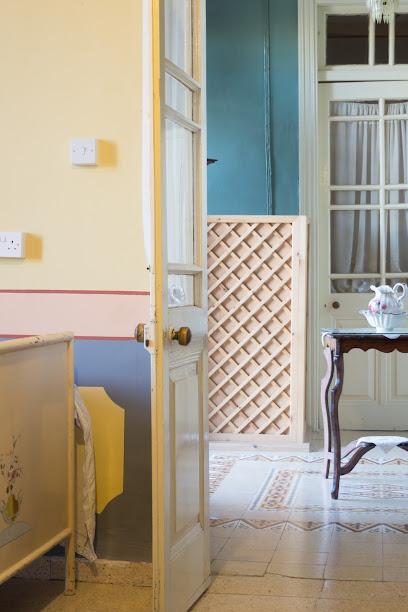
Monastery of the Virgin Mary of Arakas
Discover Byzantine art and serene landscapes at this UNESCO World Heritage site nestled in the Troodos Mountains of Cyprus.
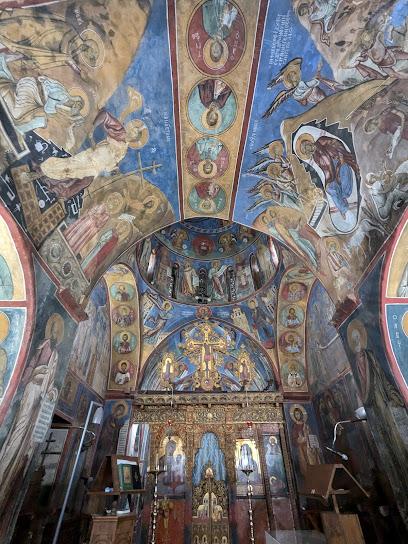
Pierides Museum - Bank of Cyprus Cultural Foundation
Explore 9,000 years of Cypriot history at the Pierides Museum, a captivating journey through the island's rich cultural heritage in a colonial-style mansion.
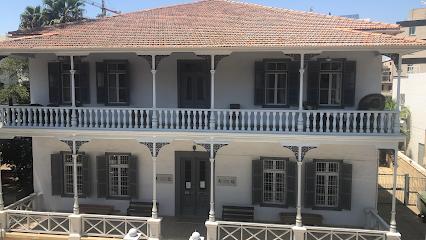
Mesa Potamos (Argolachania) Picnic Site
Escape to Mesa Potamos Picnic Site in the Troodos Mountains for a refreshing retreat with nature trails, waterfalls, and BBQ spots.
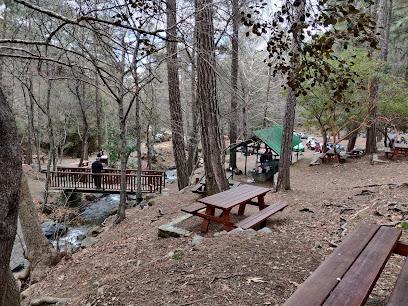
Panagia Amirous Monastery
Discover the serene beauty and spiritual heritage of this Cypriot monastery, nestled in the foothills with breathtaking panoramic views.
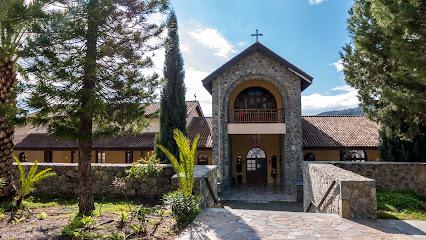
Local Archaeological Museum of Kourion
Discover artifacts from the ancient city-kingdom of Kourion, from the Bronze Age to the Roman era, in a traditional village setting.
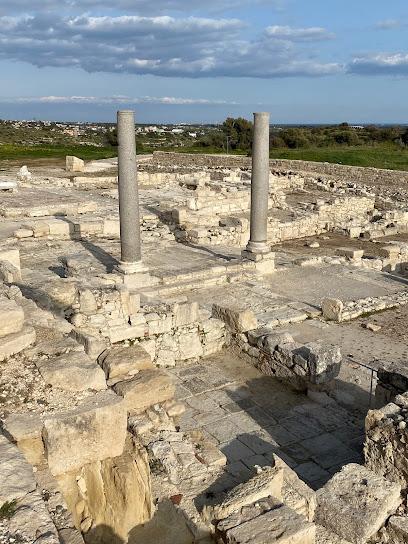
Lefkara square
Discover Lefkara Square: a Cypriot treasure where timeless traditions of lace and silver meet stunning mountain views and village charm.
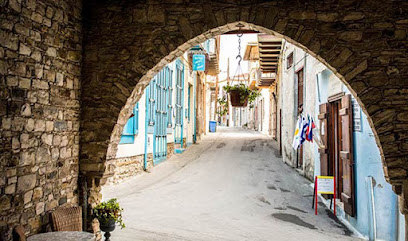
Essential places to dine
Lefkara Da Vinci Pizzaria & Cafe
Experience authentic Italian cuisine at Lefkara Da Vinci Pizzaria & Cafe in Pano Lefkara, Cyprus - where every bite tells a story.
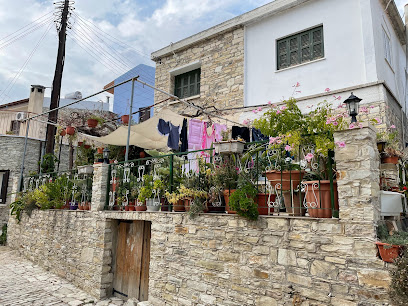
Coffee Yard Cafe-Restaurant
Discover authentic Cypriot flavors at Coffee Yard Cafe-Restaurant in Pano Lefkara—where culinary delights meet warm hospitality.
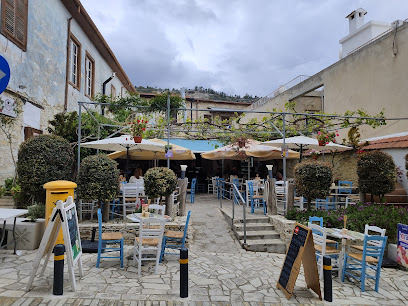
Lefkara Pavilion
Savor authentic Cypriot cuisine in the heart of Pano Lefkara at Lefkara Pavilion – where tradition meets flavor.
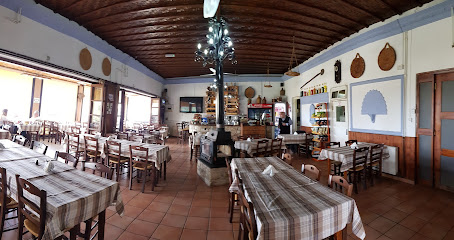
To Kafeneio tis Pareas
Savor authentic Cypriot cuisine at To Kafeneio tis Pareas – your perfect breakfast and brunch destination in Pano Lefkara.
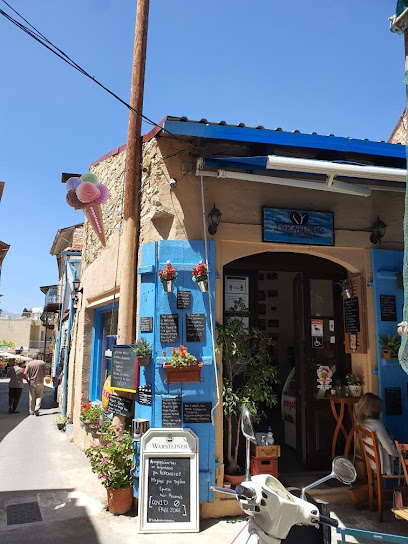
HOUSE 1923 - Tavern
Experience authentic Cypriot cuisine at HOUSE 1923 - Tavern in Pano Lefkara, where tradition meets flavor in every dish.
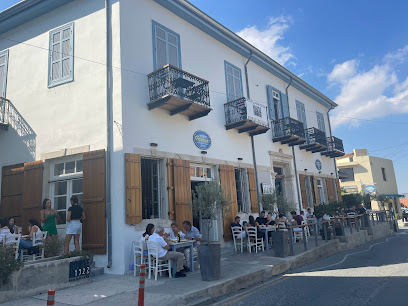
Panadentro Tavern
Discover authentic Cypriot cuisine at Panadentro Tavern in Kato Lefkara—where tradition meets taste in a charming setting.
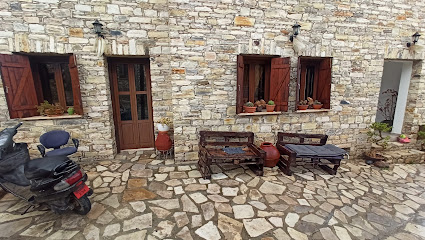
Adamos Taverna
Discover authentic Cypriot cuisine at Adamos Taverna in Pano Lefkara - a must-visit dining experience filled with flavor and tradition.
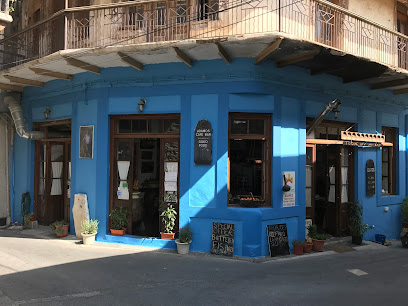
Γευστικοραμα
Experience authentic Cypriot cuisine at Γευστικοραμα in Pano Lefkara – where traditional flavors meet warm hospitality.
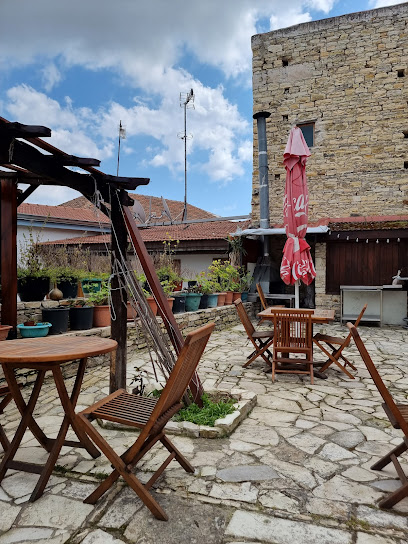
Christos&Pepa Tavern
Savor traditional Cypriot flavors at Christos&Pepa Tavern in Pano Lefkara - where every dish tells a story.
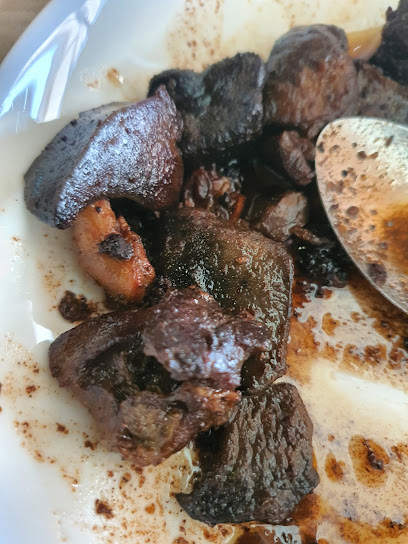
Novél Restaurant
Experience authentic Cypriot cuisine at Novél Restaurant in Pano Lefkara – where tradition meets flavor.
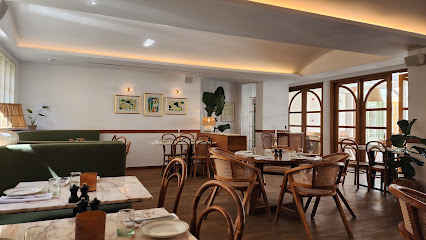
Lefki's
Discover authentic Cypriot flavors at Lefki's in Pano Lefkara – where every dish tells a story.

Markets, malls and hidden boutiques
Πάνω Λεύκαρα
Explore Pano Lefkara, a Cypriot gem famous for its exquisite lace and charming streets, perfect for a cultural getaway.
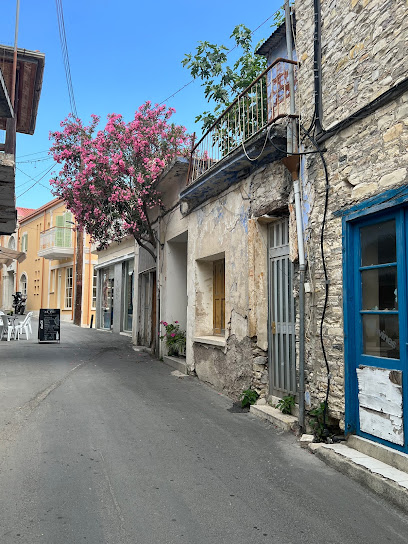
Coffee Yard Cafe-Restaurant
Experience the essence of Cypriot cuisine and coffee culture at Coffee Yard Cafe-Restaurant in the picturesque village of Pano Lefkara.
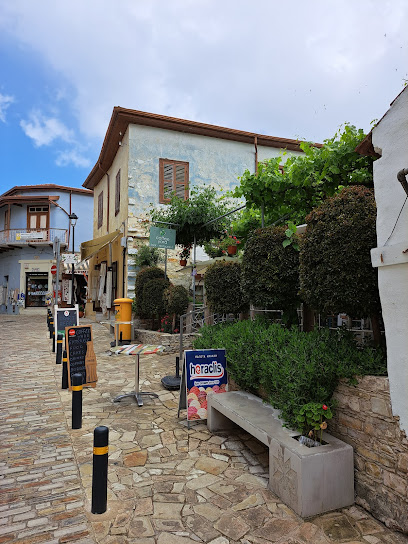
Marikkou pou ta Lefkara - Local Coffee Shop
Experience the rich flavors of local coffee and delightful crepes at Marikkou pou ta Lefkara in the picturesque village of Pano Lefkara, Cyprus.
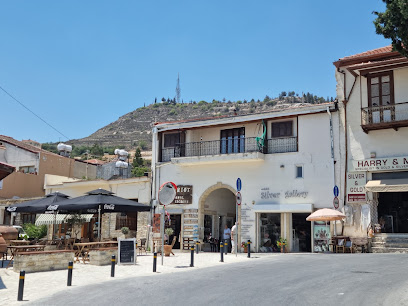
Terra Oliva Organic Olive Farm
Experience the authentic taste of Cyprus at Terra Oliva Organic Olive Farm, where tradition meets flavor in every drop of olive oil.
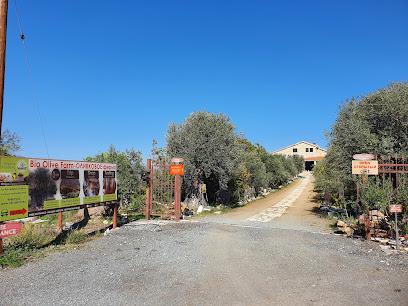
To Kafeneio tis Pareas
Experience the heart of Cyprus at To Kafeneio tis Pareas, where exceptional coffee meets warm hospitality in a charming village setting.
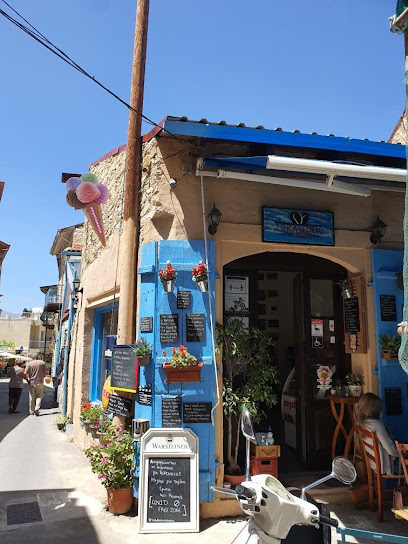
Lefkara square
Explore Lefkara Square, a cultural gem in Cyprus known for its exquisite lace, traditional shops, and charming atmosphere.
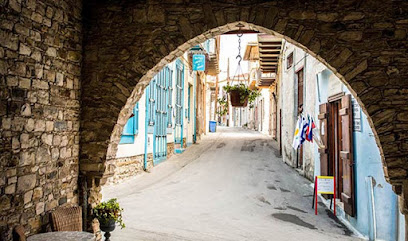
Lefkara Hotel Boutique
Experience the perfect blend of tradition and modern comfort at Lefkara Hotel Boutique, your gateway to the enchanting village of Pano Lefkara, Cyprus.

HOUSE 1923 - Boutique Hotel
Experience the charm of traditional Cyprus at HOUSE 1923, a boutique hotel in the heart of Pano Lefkara, offering exquisite comfort and local culture.
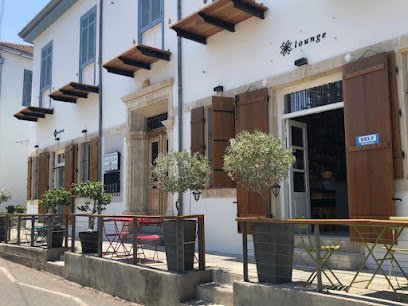
Takis & Gregoria
Explore Takis & Gregoria in Pano Lefkara for authentic Cypriot crafts and souvenirs, reflecting the island's rich culture and heritage.
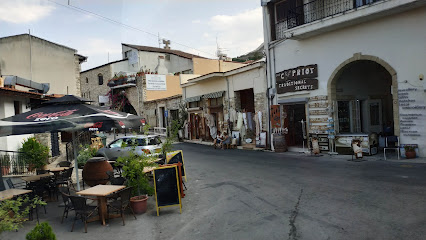
Platia Coffee Shop
Experience the charm of Pano Lefkara at Platia Coffee Shop, where local flavors and warm hospitality blend in a cozy setting.
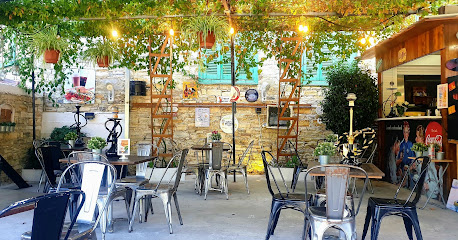
Lefkara Museum of Traditional Embroidery and Silversmith Work
Experience the rich heritage of Cypriot craftsmanship at the Lefkara Museum, celebrating traditional embroidery and exquisite silversmith work.
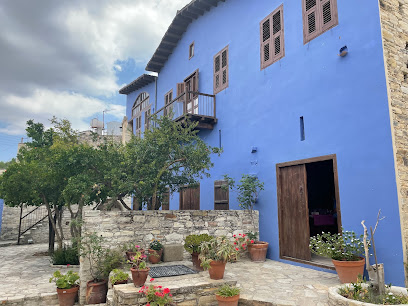
Lefkara Arts & Crafts
Explore the exquisite craftsmanship of Lefkara Arts & Crafts, where unique jewelry and traditional lace-making come together in a beautiful Cypriot village.
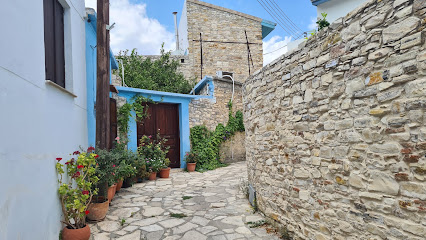
Lefkara
Discover Lefkara: A traditional Cypriot village famous for lace, local cuisine, and breathtaking mountain views.
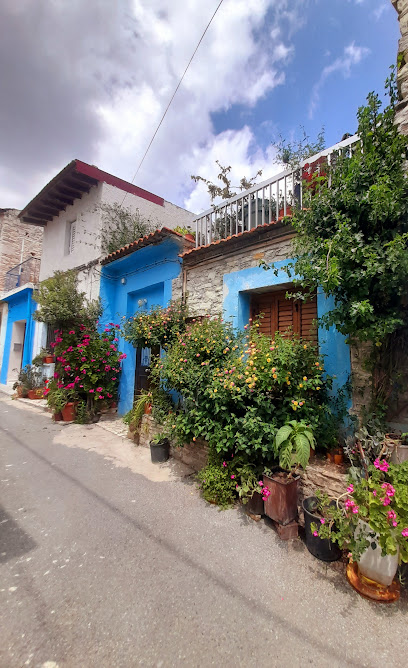
Rouvis Lace and Silver
Explore the rich craftsmanship of handmade lace and silver jewelry at Rouvis Lace and Silver in Pano Lefkara, Cyprus.
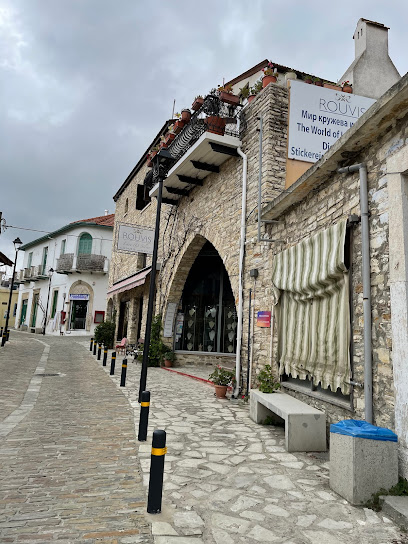
SilverArt
Explore the exquisite craftsmanship of SilverArt, where every piece of jewelry tells a story of Cypriot heritage and artistry.
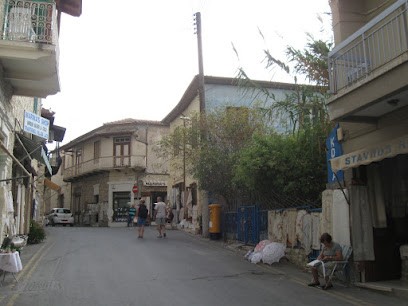
Essential bars & hidden hideouts
Tochni Tavern - Traditional Restaurant With View
Experience authentic Cypriot cuisine with breathtaking views at Tochni Tavern, a hidden gem in the heart of Cyprus.
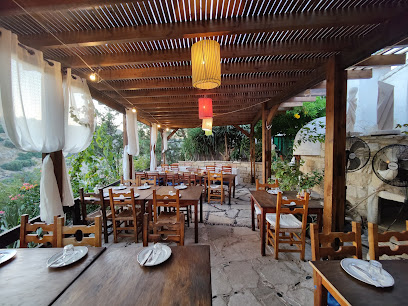
The Wooden Pub
Unwind at The Wooden Pub in Paphos, a lively destination for drinks, delightful snacks, and a vibrant atmosphere amidst the beauty of Cyprus.
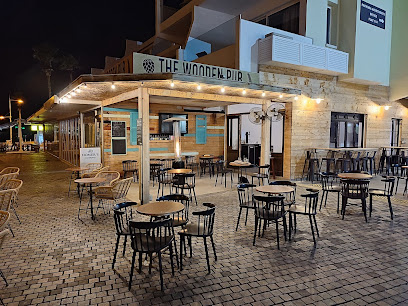
Jackson Gastro Cafe Bar
Discover Jackson Gastro Cafe Bar in Kiti, Cyprus - where grilled delicacies meet a cozy café atmosphere, perfect for breakfast and beyond.
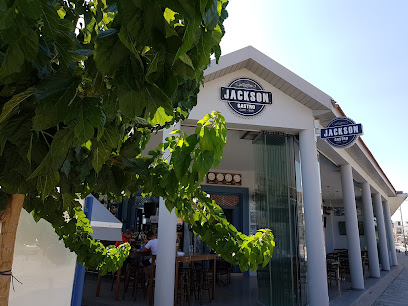
Lefkara Da Vinci Pizzaria & Cafe
Discover the authentic taste of Italy in the heart of Pano Lefkara at Lefkara Da Vinci Pizzaria & Cafe, where every slice tells a story.
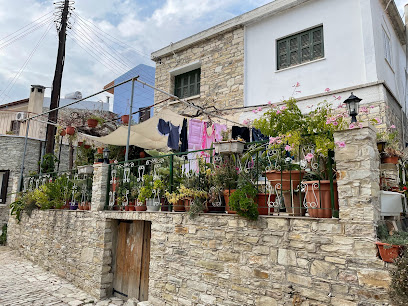
Secret Garden Wine & Coffee Bar
Discover the charm of Larnaca at Secret Garden Wine & Coffee Bar, where exquisite wines meet a serene garden ambiance.
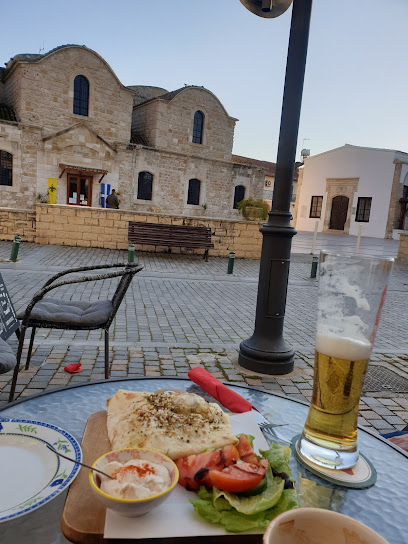
Marikkou pou ta Lefkara - Local Coffee Shop
Discover the flavor of Cyprus at Marikkou pou ta Lefkara, where traditional dishes meet cozy coffee shop charm in the heart of Pano Lefkara.
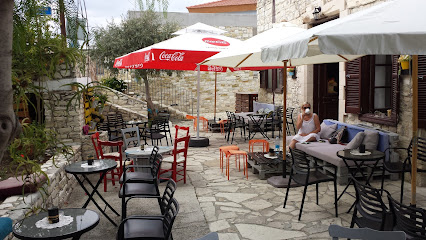
The Tudor Inn Bar & Restaurant
Experience exquisite grill cuisine and vibrant jazz music at The Tudor Inn Bar & Restaurant in Larnaca, Cyprus.
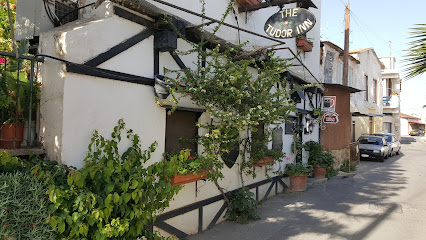
Kathikas Square Gin Bar
Discover the delightful Kathikas Square Gin Bar in the heart of Cyprus, offering a wonderful selection of gin and stunning mountain views.
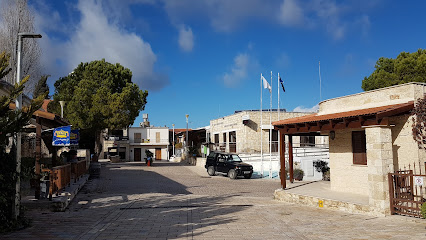
Balza
Discover Balza, a vibrant rooftop bar in Nicosia, offering stunning views, refreshing cocktails, and a lively atmosphere perfect for tourists.
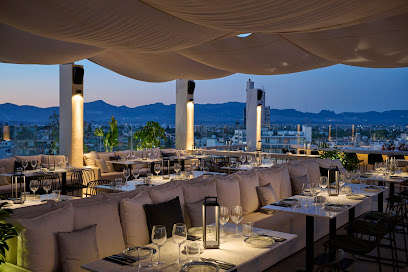
HOUSE 1923 - Tavern
Discover the culinary delights of HOUSE 1923 - Tavern in Pano Lefkara, where traditional Cypriot flavors meet modern dining in a charming atmosphere.
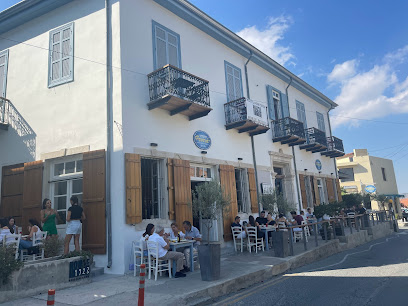
Vinaria
Experience the rich flavors of Cyprus at Vinaria, Kiti's premier wine bar offering an exquisite selection of local and international wines.
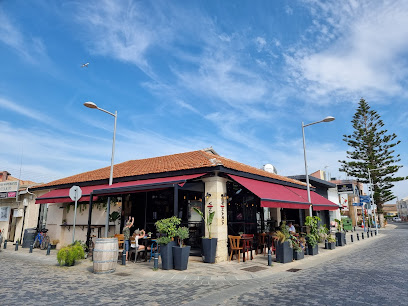
Adamos Taverna
Discover the heart of Cypriot flavors at Adamos Taverna in Pano Lefkara, offering authentic dishes and a warm, welcoming atmosphere.
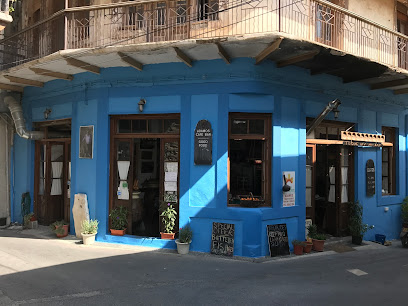
Seven Monkeys The Bar
Experience the pulse of Nicosia's nightlife at Seven Monkeys The Bar, where great drinks and vibrant atmosphere await.
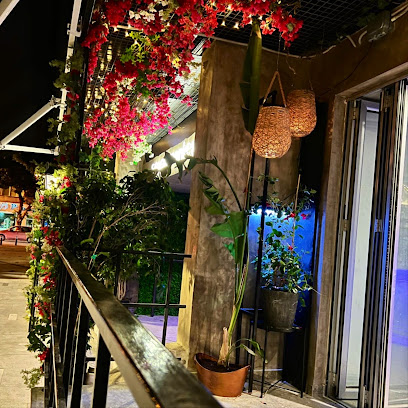
Retreat & Club Edition Finesse
Discover the charm of Retreat & Club Edition Finesse, a distinguished wine bar and café in Maroni, Cyprus, offering a perfect blend of fine wines and exquisite cuisine.
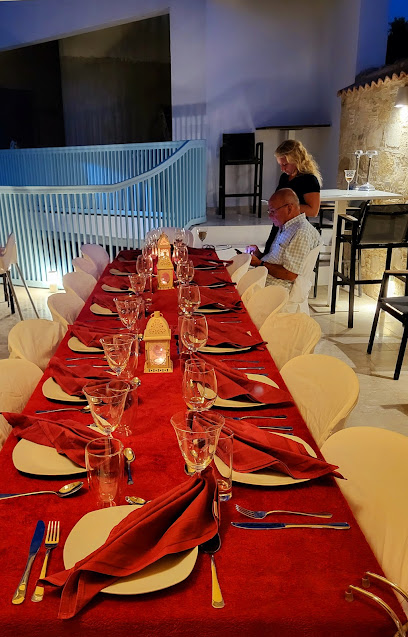
Local Phrases about Pano Lefkara Village
-
- HelloΓεια σας
[Yia sas] - GoodbyeΑντίο
[Andio] - YesΝαι
[Ne] - NoΌχι
[Ochi] - Please/You're welcomeΠαρακαλώ
[Parakalo] - Thank youΕυχαριστώ
[Efharisto] - Excuse me/SorryΣυγνώμη
[Signomi] - How are you?Πώς είσαι;
[Pos ise;] - Fine. And you?Καλά. Εσύ;
[Kala. Esi;] - Do you speak English?Μιλάς αγγλικά;
[Milas anglika;] - I don't understandΔεν καταλαβαίνω
[Den katalaveno]
- HelloΓεια σας
-
- I'd like to see the menu, pleaseΘα ήθελα να δω το μενού, παρακαλώ
[Tha ithela na do to menu, parakalo] - I don't eat meatΔεν τρώω κρέας
[Den troo kreas] - Cheers!ΥΓΕΙΑ!
[Yia!] - I would like to pay, pleaseΘα ήθελα να πληρώσω, παρακαλώ
[Tha ithela na plirosο, parakalo]
- I'd like to see the menu, pleaseΘα ήθελα να δω το μενού, παρακαλώ
-
- Help!Βοήθεια!
[Voithia!] - Go away!Φύγε!
[Fiγe!] - Call the Police!Καλέστε την Αστυνομία!
[Kaleste tin Astynomia!] - Call a doctor!Καλέστε γιατρό!
[Kaleste yatro!] - I'm lostΈχω χαθεί
[Eho hathi] - I'm illΕίμαι άρρωστος
[Ime arrostos]
- Help!Βοήθεια!
-
- I'd like to buy...Θα ήθελα να αγοράσω...
[Tha ithela na agoraσo...] - I'm just lookingΑπλά κοιτάω
[Apla kito] - How much is it?Πόσο κοστίζει;
[Poso kostizi;] - That's too expensiveΑυτό είναι πολύ ακριβό
[Afto ine poli akrivo] - Can you lower the price?Μπορείτε να μειώσετε την τιμή;
[Borite na meiosete tin timi;]
- I'd like to buy...Θα ήθελα να αγοράσω...
-
- What time is it?Τι ώρα είναι;
[Ti ora ine;] - It's one o'clockΕίναι μία ώρα
[Ine mia ora] - Half past (10)Μισή (10)
[Misi (10)] - MorningΠρωί
[Proi] - AfternoonΑπόγευμα
[Apoyevma] - EveningΒράδυ
[Vradi] - YesterdayΧτες
[Htes] - TodayΣήμερα
[Simera] - TomorrowΑύριο
[Avrio] - 1Ένα
[Ena] - 2Δύο
[Dio] - 3Τρία
[Tria] - 4Τέσσερα
[Tessera] - 5Πέντε
[Pente] - 6Έξι
[Exi] - 7Επτά
[Epta] - 8Οκτώ
[Okto] - 9Εννέα
[Enea] - 10Δέκα
[Deka]
- What time is it?Τι ώρα είναι;
-
- Where's a/the...?Πού είναι ένας/η...
[Pou ine enas/i...] - What's the address?Ποια είναι η διεύθυνση;
[Pia ine i diefthinsi;] - Can you show me (on the map)?Μπορείτε να μου δείξετε (στο χάρτη);
[Borite na mu dixete (sto charti);] - When's the next (bus)?Πότε είναι το επόμενο (λεωφορείο);
[Pote ine to epomeno (leoforeio);] - A ticket (to ....)Ένα εισιτήριο (για ....)
[Ena isitirio (ya ....)]
- Where's a/the...?Πού είναι ένας/η...
History of Pano Lefkara Village
-
Pano Lefkara Village, located in the Troodos Mountains of Cyprus, has a rich history dating back to ancient times. The village’s name is derived from the Greek words 'lefka' meaning 'white' and 'ori' meaning 'mountains,' referring to the white limestone of the surrounding hills. Evidence suggests that the area was inhabited since the Neolithic period, with significant development during the Byzantine era.
-
During the medieval period, Pano Lefkara became an important center for trade and craftsmanship. Under Venetian rule, which lasted from 1489 to 1571, the village flourished economically. The Venetians introduced new architectural styles and artistic influences, which can still be seen in some of the village’s buildings today. Lefkara lace, or 'lefkaritika,' began to gain prominence during this era, becoming a highly sought-after product across Europe.
-
The Ottoman Empire took control of Cyprus in 1571 and ruled for over three centuries. Under Ottoman rule, Pano Lefkara experienced significant changes in its social and economic structures. The Ottomans introduced new agricultural practices and the cultivation of different crops. Despite the challenges, the village maintained its reputation for exquisite lacework and silver craftsmanship, which continued to attract traders and visitors.
-
In 1878, Cyprus came under British administration, marking another era of transformation for Pano Lefkara. The British improved infrastructure, including roads and communication systems, which facilitated greater access to the village. During this period, Lefkara lace gained international fame, particularly after a visit from Queen Victoria, who is said to have purchased lace from the village. This royal endorsement boosted the village’s reputation and demand for its intricate lace and silver work.
-
Pano Lefkara’s cultural heritage, particularly its lace-making tradition, was recognized by UNESCO in 2009 when 'Lefkara Lace' was inscribed on the Representative List of the Intangible Cultural Heritage of Humanity. This acknowledgment not only celebrated the village’s unique craft but also helped preserve and promote its traditional practices. Today, visitors to Pano Lefkara can witness lace-making demonstrations and purchase authentic pieces from local artisans.
-
Today, Pano Lefkara is a vibrant village that attracts tourists from around the world. Its narrow cobblestone streets, traditional stone houses, and picturesque surroundings offer a glimpse into its storied past. The village is known for its cultural festivals, such as the Annual Lefkara Festival, which showcases local crafts, music, and cuisine. Pano Lefkara continues to be a living testament to Cyprus’s rich history and cultural diversity.
Pano Lefkara Village Essentials
-
Pano Lefkara Village is located in the Larnaca District of Cyprus. The nearest international airport is Larnaca International Airport, approximately 40 kilometers away. From Larnaca, you can take a taxi or rent a car to reach the village. The journey typically takes around 40 minutes by road. Alternatively, there are bus services that operate from Larnaca to Lefkara, but they may require a transfer in the nearby town of Kofinou.
-
Pano Lefkara Village is best explored on foot due to its narrow streets and charming alleys. For longer trips, local taxis are available, and car rentals can be arranged if you wish to explore the surrounding countryside. Public buses connect Lefkara to nearby towns and cities, but schedules may be infrequent. Cycling is also a popular option for those looking to enjoy the scenic views at a leisurely pace.
-
The official currency in Cyprus is the Euro (EUR). Credit cards are widely accepted in most hotels, restaurants, and shops in Pano Lefkara Village. However, it is advisable to carry some cash, especially when visiting smaller establishments or purchasing local crafts. ATMs are available in the village, but it is wise to withdraw sufficient cash in larger towns to ensure you have enough funds for your visit.
-
Pano Lefkara Village is generally a safe destination for tourists. There are no specific high-crime areas targeting tourists, but standard precautions should always be taken. Avoid leaving valuables unattended and be cautious when walking alone at night. The village has a low crime rate, but it is always best to stay vigilant and aware of your surroundings.
-
In case of emergency, dial 112 for immediate assistance. There is a local medical center in Pano Lefkara Village, and more comprehensive medical facilities are available in nearby towns such as Larnaca. It is recommended to have travel insurance that covers medical emergencies. Pharmacies are available in the village where you can purchase over-the-counter medications for minor health issues.
-
Fashion: Do dress modestly, especially when visiting religious sites. Avoid wearing overly revealing clothing. Religion: Do respect local customs and traditions. Always cover your shoulders and knees when entering churches. Public Transport: Do be courteous to other passengers and give up your seat to the elderly or those in need. Don't eat or drink on public transport. Greetings: Do greet people with a friendly 'kalispera' (good day) or 'kalimera' (good morning). A handshake is also common. Eating & Drinking: Do try local delicacies like souvlaki and halloumi cheese. Don't refuse food or drink offered by locals, as it is considered impolite.
-
To experience Pano Lefkara Village like a local, visit the village's craft shops where you can see artisans creating traditional Lefkaritika lace and silverware. Engage with locals, who are often eager to share the history and techniques behind their crafts. Don't miss the annual Lefkara Festival in August, which showcases local culture, food, and music. For a unique experience, take a walk to the nearby hills for panoramic views of the village and its surroundings.
Nearby Cities to Pano Lefkara Village
-
Things To Do in Limassol
-
Things To Do in Nicosia
-
Things To Do in Troodos
-
Things To Do in Kyrenia
-
Things To Do in Pissouri
-
Things To Do in Famagusta
-
Things To Do in Ayia Napa
-
Things To Do in Protaras
-
Things To Do in Paphos
-
Things To Do in Kato Paphos
-
Things To Do in Polis Chrysochous
-
Things To Do in Alanya
-
Things To Do in Batroun
-
Things To Do in Beirut
-
Things To Do in Byblos








